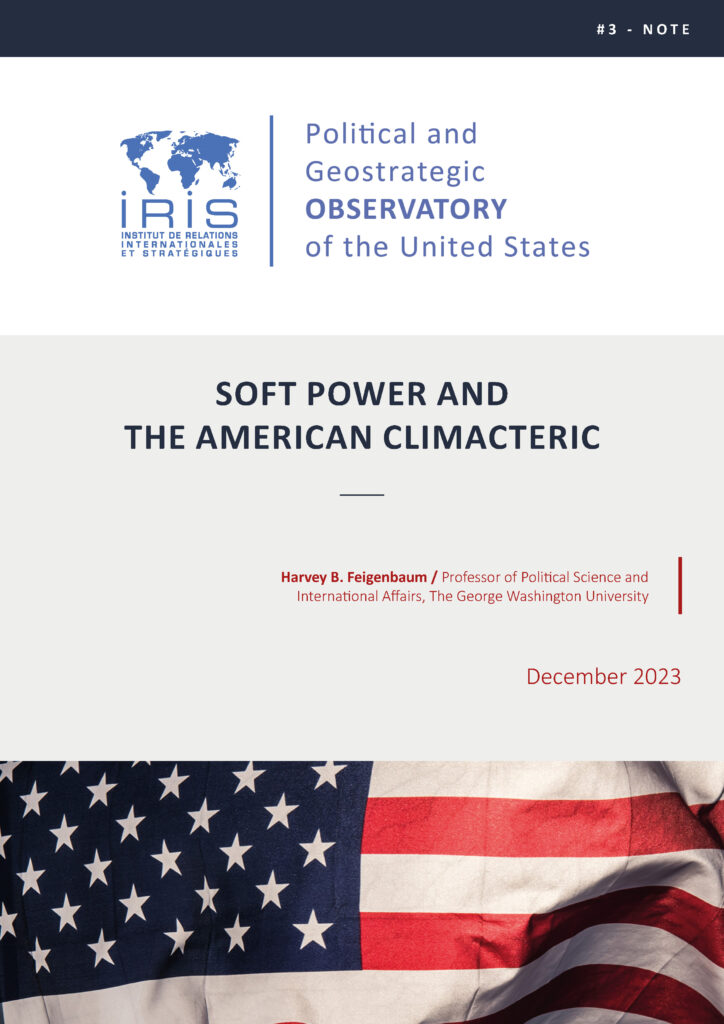Notes / Political and Geostrategic Observatory of the United States
14 December 2023
Soft Power and the American Climacteric

An important component of American influence has been labeled by Joseph Nye, an academic and one-time official in the Pentagon, as “soft power”. This is a reference to the broad reservoir of good feeling that many people around the world have toward the United States. America’s contributions to world culture in the form of films, TV, popular music, and a wide array of consumer products are known throughout most of the world. While American pop culture is criticized by elites and intellectuals, many people tend to have a positive view of Americans, though not always of their government. Joseph Nye noted that people were often willing to act in ways favorable to the US, so that soft power could in some instances, make coercion unnecessary. Thus, it could be a substitute for “hard power.”
While many countries have sought to acquire soft power through such programs as the Goethe Institut, the British Council, or la Francophonie, American soft power was the unintended consequence of American capitalism. Private entrepreneurs seeking to make money by providing Americans with entertainment, found they could also make money by exporting their efforts abroad. American cultural products such as movies and television shows made their way to foreign audiences, audiences which were more than receptive.
The capital of the American entertainment is Hollywood. Initially, the founders of the great film studios, chose to locate in southern California, a state which offered varied terrain, substantial light, and even more substantial distance from the New York based Edison Trust, which used its control of patents to stifle competition. Hollywood films, unlike their European counterparts, were always intended to make money. Since this meant finding stories that could appeal to people hailing from diverse ethnic backgrounds, the components of America’s heterogeneous audience, America films gave priority to stories with broad resonance and universal themes…

